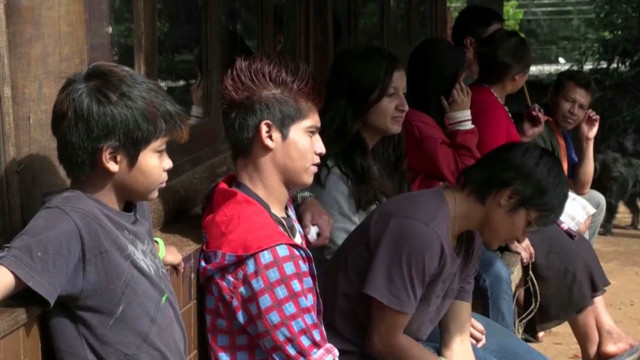Competing claims over farmland in Brazil have led to divisions and in some cases violence between indigenous people and farmers. This week, Brazil’s Ministry of Justice revoked a decree that had enlarged the smallest indigenous reservation in the country.
CGTN’s Paulo Cabral reports.
Ivandro Tupa Mirim is a freshman at Catholic University in Sao Paulo. He’s the first person from his indigenous Guarani village to go to university. His goal: become a lawyer and help his people secure their rights – especially when it comes to land.
“We know that the struggle for land is a big issue for indigenous people all over Brazil. It’s a tough fight because we use it for the survival of our people, not for profit. And we know that, unfortunately, for the white man, the land and everything on it, like the trees – are seen as products to be sold for a profit,” said Mirim.
The Tekoa Pyau Guarani village is located on the outskirts of Sao Paulo, Brazil’s biggest city. This community of about 700 Indians has a reservation roughly the size of three football fields. It borders a forest where their ancestors once lived.
In 2015, the Ministry of Justice issued a decree adding another 500 hectares – the equivalent of about 700 football fields – to the reservation. But this week, the decision was revoked after a court challenge.
The government of the state of Sao Paulo says this area can’t go to the Guaranis because it’s part of a state park and it needs to be protected as a nature reserve. But the indigenous people here say if the idea is to preserve the environment, the best way is to leave it to them.
The Guaranis are building a communal house and have begun to work the land to produce their food. The chief says having land to live on is essential for the Guaranis to maintain their culture.
“White men say we don’t work, and we just want to explore and destroy the forest, but that is not true. We use the land according to our traditions, and we preserve the forest and the animals that live in it,” said Geni Vidal, Chief of Tekoy Tekupe Village.
For now, the Guaranis are struggling, trying to make do by selling handicrafts made in the village and getting government grants and private donations like clothes that helped them through the winter.
The question is whether their culture and their language will survive, cornered between the city and the forest.
 CGTN America
CGTN America

